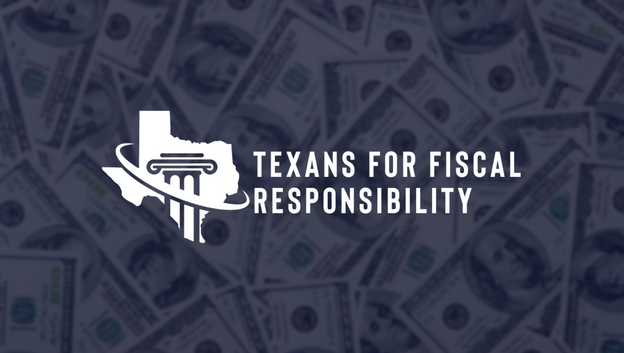
When the Clock Strikes Midnight
As the clock strikes midnight on Saturday, it will mark the end of Texas’ most extensive and expensive corporate welfare program, the Chapter 313 tax abatement program. It also represents an end to a huge stain on the legacy of free enterprise that our forefathers envisioned.
In the 87th Legislative Session, state lawmakers ended up not renewing the Chapter 313 tax abatement program as a part of the Texas Economic Development Act. This prompted a rush of applications from corporate entities all across the state in an attempt to take advantage of the program before its end, as companies that receive approval in 2022 can still receive the abatement for an additional 10 years, even if the program no longer exists.
Texas has a long and sordid history when it comes to corporate welfare programs and stifling free enterprise by picking winners and losers.
Rush of Applications
In early December, a writ of mandamus was filed with the Texas Supreme Court on behalf of two renewable energy companies, Stetson Renewables Holdings LLC and Ogallala Renewable Project LLC. The companies said that though they qualify for the current Chapter 313 tax abatement program, their applications were denied because the Texas comptroller’s office, the agency charged with processing the applications, cannot handle the sheer number of applications.
In response, Texas Comptroller Glenn Hegar released a statement that included:
“Despite receiving billions of dollars in property tax abatements over the life of the program and potentially billions more in approved incentives just this year, these companies and their attorneys are asking Texas taxpayers to should even more despite the Legislature’s decision to discontinue the program. This is a frivolous attempt to get the Texas Supreme Court to force my office to put even more resources toward the program in the final two weeks of its existence. My office has fully complied with the law and will vigorously defend our position.”
On Friday, the Texas Supreme Court denied the request to force the comptroller’s hand.
As of June 2022, the last date for which data is publicly available, there were 633 active Chapter 313 tax abatement agreements across the state of Texas. Of those, 216 (one-third) were categorized as manufacturing, and 416 (two-thirds) were categorized as renewable energy electric generation.
In a normal year, it is rare that more than 90 applications are made across the state. In the first six months of 2022 alone, more than 400 applications were filed, as it assumed more companies were attempting to take advantage of the program before its end. In theory, if these applications were ultimately accepted, it could collectively cost taxpayers an additional $5-10 billion per year. It is thus far unclear how many of the applications have been approved.
Will the Legislature Alter Course?
Leading up to the 88th Legislative Session set to begin on January 10, 2023, several Republican lawmakers, including the speaker of the Texas House, have expressed interest in reviving a supposedly similar program. For instance, House Speaker Dade Phelan indicated in August that he is confident the House can pass a “version of 313s that are more transparent, with more accountability and oversight.” In February, while speaking in front of the Texas Oil and Gas Association’s Annual Ad Valorem Tax Conference in San Antonio, Phelan indicated that in the interim the Texas Legislature is continuing to prioritize and work on things like “developing a program to replace Chapter 313, a crucial incentive program to attract businesses to Texas.”
There is bipartisan opposition to such a program, as both major political parties cite opposition to corporate welfare in their respective platforms.
The Texas GOP platform states:
“Plank 94: Property Tax Abatements: We support repealing Tax Code Chapter 312 county and municipal property tax abatements, and we oppose reintroducing school property tax abatements, formerly known as Chapter 313.”
The Texas Democratic Party platform states:
“Eliminate tax loopholes and unproductive special breaks to simplify the tax system and provide revenue for essential services.”
That same platform continues:
“Prohibit ‘corporate welfare’ incentives that pit states and communities against each other.”
This bipartisan opposition also played out in the 87th Legislative Session when legislation seeking to extend the Chapter 313 program by an additional 10 years was ultimately killed by amendment efforts from both Republican and Democrat state lawmakers, causing the author to delay the bill beyond the legislative session, procedurally ending its prospects.
Reports from the capitol seem to indicate that lawmakers are working to revive a similar program without the inclusion of “renewable energy” as a means by which to potentially bring lawmakers that had previously been opposed to the program on board.
https://twitter.com/JaredLPatterson/status/1608640030079356929
Texans for Fiscal Responsibility has also heard reports that legislative leadership is working to further incentivize lawmakers who had previously been opposed to such a program by concocting some exchange for an unknown “school choice” effort. Short on details, these efforts have not yet manifested in any pre-filed legislation ahead of the 88th Legislative Session.
What Does it Mean for Texas Taxpayers?
Though the program will soon be defunct, Phelan’s sentiment that the program should be replaced should concern Texas taxpayers, who are still reeling from ever-increasing property tax burdens.
Texans for Fiscal Responsibility’s position is that abatements allow large corporations and those with political influence to temporarily exempt a portion of their property’s value from taxation — a privilege not granted to Texas homeowners or the vast majority of businesses. This has become an attractive option for giant corporations seeking temporary relief from Texas’ oppressive property tax rates.
Taxpayers should not be stuck with increased tax bills in order to carry the additional burden of well-connected businesses. Instead, they should demand the Texas Legislature let these programs expire and encourage local governments to compete for business by cutting taxes and bureaucratic red tape to foster an environment of free enterprise, rather than picking winners and losers.




